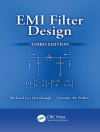This expansive reference provides readers with the broadest available single-volume coverage of leading-edge advances in the development and optimization of clean energy technologies. From innovative biofuel feed stocks and processing techniques, to novel solar materials with record-breaking efficiencies, remote-sensing for offshore wind turbines to breakthroughs in high performance PEM fuel cell electrode manufacturing, phase change materials in green buildings to bio sorption of pharmaceutical pollutants, the myriad exciting developments in green technology described in this book will provide inspiration and information to researchers, engineers and students working in sustainability around the world.
Tabla de materias
Part 1. Battery Technology.- Electrochemical Study of the Cobalt-Containing and Non-Cobalt Containing AB5 Alloys Used as Negative Electrodes in Ni–MH Batteries.- Nanocomposite Based on Li4Ti5O12 Structures for High Rate Li-Ion Battery Applications.- A Novel Battery System for Electric Vehicles.- Cr and V Substituted Li Mn2O4 Cathode Electrode Materials For High Rate Battery Applications.- Part. 2. Biomass & Biofuels.- An Overview of Science Teachers’ Knowledge of Bioenergy and the Need for Future Research – A Case From India.- Advances in Algae Harvesting and Extracting Technologies for Biodiesel Production.- Investigation of Photobioreactor Design for Biomass Production by Green Microalgae.- Bioethanol Production from Molasses by Pervaporation Membrane Bioreactor.- Biofuel Production from Sunflower Oil and Determination of Fuel Properties.- Biodiesel Production from Non-Comestible Oils.- Development of a Bi-fuel SI Engine Model.- Biomass Gasification for Hydrogen and Power Production: Efficiency and Environmental Impact Assessment.- Part 3. Clean Coal Technologies.- Influence of Oxygen Concentration and Equivalence Ratio on MSW Oxygen-Enriched Gasification Syngas Compositions.- Oxy-fuel Combustion for Carbon Capture and Sequestration (CCS) from a Coal/Biomass Power Plant: Experimental and Simulation Studies.- Part 4. Energy Storage.- Numerical Simulation of Wallboards Constructive Incorporated with Different PCMs Content Solutions for Passive Cooling in Southern of Algeria.- The Energy Conservation Potential of Using Phase Change Materials as Thermal Mass Material for Air Source Heat Pump Driven Underfloor Heating System in a Building.- Micro-Macrocapsulation of Phase Change Materials by Emulsion co-polymerization Method.- Investigation of Heat Storage Performance of a Solar Pond with Potassium Chloride.- Performance Comparison of the Sodium and Magnesium Chloride Saturated Solar Ponds.- Investigation of Effect of Using Evacuated Tube Solar Collector on Solar Pond Performance.- Part 5. Geothermal Energy.- Numerical Modelling of Vertical Earth Pipe Cooling System for Hot and Humid Subtropical Climate.- Determination of Geothermal Fields at Kızılcahamam (Ankara) Using Vertical Electrical Sounding (VES) and Spontaneous Potential (SP) Methods.- Part 6. Green Buildings.- The Sustainable Potential of Digital Fabrication Process and De-standardization of Architectural Products.- A Building Energy Performance Model and Advisor System.- Shading Performance on Terraced House Façade Designs in Malaysia.- Employing Second Matter from Agricultural Sector in Architecture: A Comparison Between the Italian and Romanian Situation.- Comparison of Energy Reduction Potential of an Adobe House under Different Climatic Conditions in India.- The Proper Utilization of Passive Solar Energy in Residential Buildings, Northern Cyprus.- A Study on Thermo-Physical Properties of Building Materials: Concrete of Vegetable Fiber.- Theoretical Investigation on a Building-Integrated PV/T (Bi PVT) System for Electrical and Thermal Energy Saving Case Study: Integrated Solar Village of Bou-Saada.- Part 7. Hydrogen Energy and Fuel Cells.- Water is the Ultimate Source of Hydrogen Energy: Scientific Citations and Quotations.- Twin-Head Platform.- Coke Resistant Catalysts for Methane Steam Reforming in the Presence of Higher Hydrocarbons.- Ultrasonic Spray Coating Technique for High Performance PEM Fuel Cell Electrode Manufacturing.- Role of Sulfur to Acquire Hydrogen from the Black Sea.- Hydrogen Generation and Storage from Sodium Borohydride.- System Design and Optimal Management Strategy for Photovoltaic Energy and Hydrogen Production.- Production of Synthesis Gases from Catalytic Steam Reforming of Ethanol and Propane Processes.- Clean Energy Technology Development: Hydrogen Production by Escherichia coli during Glycerol Fermentation.- Safety Rules and Measures to be Taken Where Hydrogen Gas is Stored.- Inlet Methane Temperature Effectat a Planar SOFC Thermal Field under Direct Internal Reforming Condition.- Prospects and Analysis of Hydrogen Production from Renewable Electricity Sources in Algeria.- Electrochemical Evaluation of High Rate Cu/Li Cr2/3V1/6Mn1/6O2 Nanocomposites Structures as Cathode Electrodes for Li-Ion Batteries.- Hydrogen Production from Nuclear Power Energy: Comparative Cost Assessment.- Activity of Yttrium Strontium Titanate Based Catalyst over Steam Reforming of Dodecane.- Part 8. Power Generation.- Cost Optimization of a Hybrid Off-Grid Power System for Remote Localities – A Statistical Model.- Electricity Trade Patterns in a Network.- Optimal Sizing of PV Lighting System Using Genetic Algorithms: Application to a Site in South Algeria.- Performance of Induction Motor under the Effect of Voltage Unbalance with Loading Consideration.- A Simple and Accurate Maximum Power Point Tracking Algorithm for Photovoltaic Systems.- Energetic and Exergetic Performance Evaluations of an Experimental BETA Stirling Machine.- Control of Single Stage Grid Connected PV-Inverter Based On Direct Space Vector PWM.- Part 9. Renewable Energy.- Determining the Optimal Capacities of Renewable-Energy-Based Energy Conversion Systems for Meeting the Demands of Low-Energy District Heating, Electricity and District Cooling—Case Studies in Copenhagen and Toronto.- Thermal Modeling of a Modified Basin Type Solar Still.- Potentials and Prospects of Renewable in Libya.- Synthesis of Titanium Decorated Graphene for Renewable Energy Applications.- Maximisation and Optimisation of the Total Solar Radiation Reaching the Solar Collector Surfaces.- Technical Study of a Hybrid Solar-Geothermal Power Plant and its Application to a Thermal Design Course.- Technical Analysis of a Hybrid Desiccant Cooling in a Mediterranean Climate.- Certification Issue of Solar Photovoltaic Modules for Local Production, Problems and Solutions in Turkey.- Statistical Analysis of Short Term Solar Radiation Data over Aligarh (India).- Characterization and Simulation of Silicon Oxynitride Films Deposited by ECR- PECVD: For Solar Applications.- Shape Effects of Alumina Nanofluid on Flat-plate Solar Collector Efficiency.- Effective Manufacture a Free-Standing Ti O2 Nanotube Arrays without Bottom Barrier Layer for Dye-Sensitized Solar Cell.- Effect of Different Parameters on the Solar Drying of Henna; Experimental Investigation in the Region of Biskra (Algeria).- Parametric Study of a Tower Power Plant Performances for its Implementation in Algeria.- Experimental and Theoretical Modeling of 5MW Offshore Wind Turbine with TLP Platform.- Wind Resource Assessment and Micrositting: A Case Study for Turkey.- Investigation of the Long Term Resource Variation in Western Coast (Aegean Sea) of Turkey through use of MERRA Reanalysis Data.- Using Remote Sensing Technologies for Wind Turbine/Farm Health Monitoring.- Dynamic Stability Analysis of Wind Turbines through In-Field Vibration Tests.- PV- Wind Installation – Powered Rural Zone Family House in Bechar (Algeria).- Prospects of a Settlement in Southern Georgia Based on Green Energy.- Modeling and Transient Simulations of 30 MW Solar Thermal Electric Power Plants in the Northeast Mediterranean Region.- An Experimental Study on the Drying of Peanuts Using Indirect Solar Dryer.- Comparative Study of Conventional and Renewable Energy Sources for HVAC Systems.
Sobre el autor
Ibrahim Dincer is a full professor of Mechanical Engineering and programs director in the faculty of Engineering and Applied Science at University of Ontario Institute of Technology. Renowned for his pioneering works, he has authored and co-authored many books and book chapters, over 1000 refereed journal and conference papers, and numerous technical reports. He has chaired many national and international conferences, symposia, workshops, and technical meetings. He is the founding chair/co-chair of various well-established international conferences, including the International Exergy, Energy, and Environment Symposium. He has delivered over 300 keynote and invited lectures. He is an active member of various international scientific organizations and societies, and serves as Editor-In-Chief for International Journal of Energy Research, International Journal of Exergy, and International Journal of Global Warming, as well as associate editor, regional editor, and editorial board member on various prestigious international journals. He is a recipient of several research, teaching, and service awards, including the Premier’s Research Excellence award in Ontario, Canada, in 2004. He has made innovative contributions to the understanding and development of exergy analysis of advanced energy systems for his so-called five main pillars: (1) better efficiency, (2) better cost-effectiveness, (3) better environment, (4) better sustainability, and (5) better energy security. He was the chair of a new technical group in ASHRAE named Exergy Analysis for Sustainable Buildings.
C. Ozgur Colpan is Associate Professor in the Department of Mechanical Engineering at Dokuz Eylul University. His research topics include thermodynamic analysis, renewable energy, multiphysics modeling and experimental characterization of fuel cells. He has co-authored 4 books and book chapters. He has contributed as technical chair in several international conferences. Onder Kizilkan is Associate Professor at Energy Systems Engineering Department and Chair of the Department at Suleyman Demirel University. He teaches graduate and undergraduate courses in the fields of thermodynamics and heat transfer and related areas. His research interests are sustainable energy systems, energy and exergy analysis, refrigeration systems and energy storage applications. He serves as referee for international prestigious journals. He has participated in national and international research projects as a researcher. He has contributed as technical co-chair in the 13th International Conference on Clean Energy 2014.
M. Akif Ezan works Researcher in the Department of Mechanical Engineering at Dokuz Eylul University. He got his Ph D degree at the same university in 2011. His research interests are thermodynamics, heat transfer and fluid dynamics.












